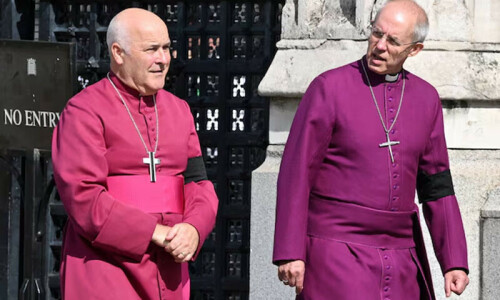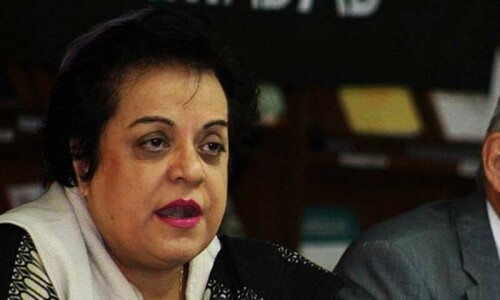LONDON, Feb 11: The Bank of England said on Wednesday the recession-hit British economy risked shrinking by up to six per cent later this year on a 12-month basis before possibly returning to growth in 2010.
In a further dose of bad news, official data showed that Britain’s jobless total was fast approaching two million.
The British central bank forecast in a quarterly report published on Wednesday that gross domestic product (GDP) would shrink by as much as six per cent in mid-2009 from a year earlier.
“The risks surrounding the central projection for GDP growth are judged to be weighted heavily to the downside,” the BoE added in a gloomy report.
The BoE’s central projection was for a contraction of between four and six per cent in mid-2009 from output 12 months earlier.
However, the economy -- which sank into an official recession in the second half of 2008 because of the global credit crunch — was forecast to grow again in early 2010 as a result of worldwide economic stimulus plans, again according to the BoE’s central projection. Rising unemployment, weak consumer spending and low investment levels were forecast to further dampen output this year, the bank said.
“In the central projection, output continues to contract in the near term, as the weakening labour market and increased uncertainty weigh on consumption, businesses run down inventories and reduce investment, and the weakness in world demand inhibits export growth,” the BoE noted.
“The near-term contraction in GDP in the central projection is substantially deeper than envisaged in the November Report.
“Further out, GDP growth recovers as the impact of the sizable policy stimulus both at home and abroad is increasingly felt ... and the lower value of sterling shifts both domestic and overseas expenditure towards UK suppliers.”
Official data last month showed that the British economy sank into a deep recession in the second half of 2008, recording two successive quarters of economic contraction because of the burgeoning global financial crisis.
Last week, the BoE cut its key lending rate by half a percentage point, taking rates to 1.0 per cent -- the lowest level in the bank’s 315-year history -- in a bid to revive the economy.
Faced with the risk of deflation and the first recession in Britain in 18 years, the bank has slashed borrowing costs since October when they had stood at 5.0 per cent. BoE governor Mervyn King, speaking after publication of the report, admitted that Britain was in “deep recession.”
With interest rates heading towards zero, he added that the Bank of England was considering other tools of economic management.
“Bank rate doesn’t have to go to zero,” he said. “We are now at the range where it doesn’t make a great deal of difference where the bank rate is -- we are at the point where we need to think about taking other sorts of action,” he added.—AFP















































Dear visitor, the comments section is undergoing an overhaul and will return soon.